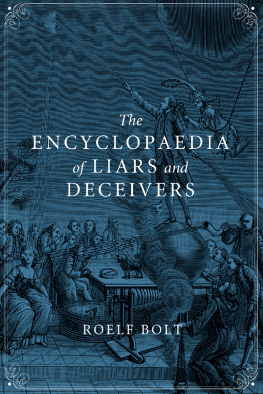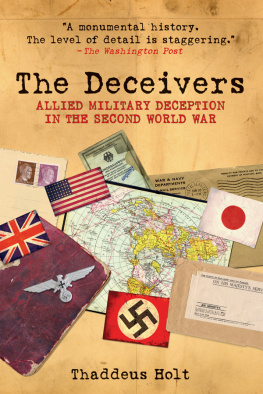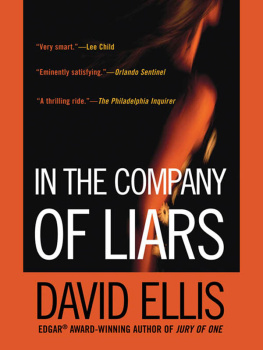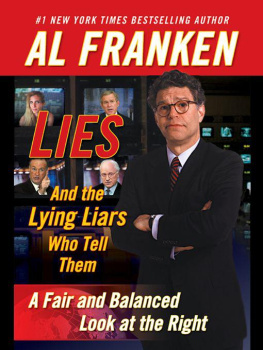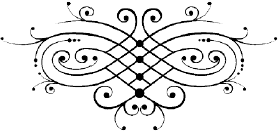Roelf Bolt - The Encyclopaedia of Liars and Deceivers
Here you can read online Roelf Bolt - The Encyclopaedia of Liars and Deceivers full text of the book (entire story) in english for free. Download pdf and epub, get meaning, cover and reviews about this ebook. year: 2010, publisher: Reaktion Books, genre: Art. Description of the work, (preface) as well as reviews are available. Best literature library LitArk.com created for fans of good reading and offers a wide selection of genres:
Romance novel
Science fiction
Adventure
Detective
Science
History
Home and family
Prose
Art
Politics
Computer
Non-fiction
Religion
Business
Children
Humor
Choose a favorite category and find really read worthwhile books. Enjoy immersion in the world of imagination, feel the emotions of the characters or learn something new for yourself, make an fascinating discovery.
- Book:The Encyclopaedia of Liars and Deceivers
- Author:
- Publisher:Reaktion Books
- Genre:
- Year:2010
- Rating:5 / 5
- Favourites:Add to favourites
- Your mark:
The Encyclopaedia of Liars and Deceivers: summary, description and annotation
We offer to read an annotation, description, summary or preface (depends on what the author of the book "The Encyclopaedia of Liars and Deceivers" wrote himself). If you haven't found the necessary information about the book — write in the comments, we will try to find it.
George Washington may never have told a lie, but he may be the only personour history is littered with liars, deceivers, fraudsters, counterfeiters, and unfaithful lovers. The Encyclopaedia of Liars and Deceivers gathers 150 of them, each entry telling the intriguing tale of the liars motives and the people who fell for the lies.
To collect these stories of deceit, Roelf Bolt travels from ancient times to the present day, documenting a huge assortment of legerdemain: infamous quacks, fraudulent scientists, crooks who committed pseudocides by faking their own deaths, and forgers of artworks, design objects, archaeological finds, and documents. From false royal claims, fake dragons eggs, and bogus perpetual motion machines to rare books, mermaid skeletons, and Stradivari violins, Bolt reveals that almost everything has been forged or faked by someone at some point in history. His short, accessible narratives in each entry offer biographies and general observations on specific categories of deceit, and Bolt captures an impressive number of famous figuresincluding Albert Einstein, Cicero, Ptolemy, Ernest Hemingway, Franois Mitterand, and Marco Poloas well as people who would have remained anonymous had their duplicity not come to light.
Funny, shocking, and even awe-inspiring, the stories of deception in this catalog of shame make The Encyclopaedia of Liars and Deceivers the perfect gift for all those who enjoy a good tall taleand those people who like to tell them.
Roelf Bolt: author's other books
Who wrote The Encyclopaedia of Liars and Deceivers? Find out the surname, the name of the author of the book and a list of all author's works by series.

